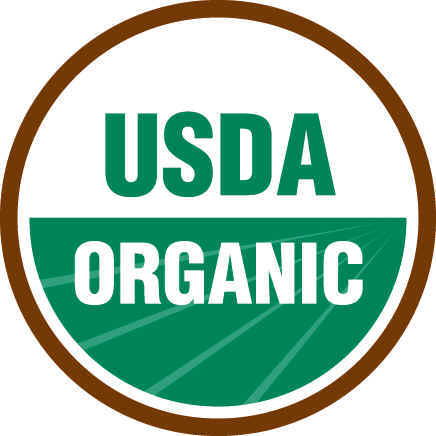 The SF Gate had a good article this weekend about the U.S. Department of Agriculture’s National Organic Program. The USDA ORGANIC seal functions as a certification mark, as only producers meeting the NOP’s specifications can use it in connection with their goods. But it’s food labeling law rather than trademark law that governs its use. Indeed, I couldn’t find the seal as a registered trademark anywhere.
The SF Gate had a good article this weekend about the U.S. Department of Agriculture’s National Organic Program. The USDA ORGANIC seal functions as a certification mark, as only producers meeting the NOP’s specifications can use it in connection with their goods. But it’s food labeling law rather than trademark law that governs its use. Indeed, I couldn’t find the seal as a registered trademark anywhere.
According to the NOP, its labeling requirements apply to “raw, fresh products and processed products that contain organic agricultural ingredients.” In summary:
- Products labeled as “100 percent organic” must contain only organically produced ingredients and processing aids.
- Products labeled “Organic” must consist of at least 95 percent organically produced ingredients. Any remaining product ingredients must consist of approved nonagricultural substances approved.
- Processed products that contain at least 70 percent organic ingredients can use the phrase “made with organic ingredients.”
- Organic production and handling operations must meet certification standards to become accredited by USDA-accredited certifying agents. Applicants must submit information about their organic system plan, including their practices and substances used in production, record keeping procedures, and practices to prevent commingling of organic and non-organic products.
Persons who knowingly sell or label as organic a product that is not produced and handled in accordance with the NOP’s regulations are subject to a civil penalty of up to $11,000.
The SF Gate article says complying with NOP standards can be difficult, but those who do think it pays off. “It’s worth it to us,” said one organic producer, even though becoming USDA certified organic increases her costs by at least 50 percent. “We’re mission driven and committed to our No. 1 value: authentic organic.”
Though other certifying organizations exist, a Seattle-based consumer researcher said the USDA’s seal is the only one that counts. “The USDA symbol is the only one that mainstream consumers can recognize. It’s the most recognizable and credible symbol that would inspire consumers to try a new product in the organic non-food space. The other ones, they’re just noise.”
These folks don’t talk about labeling compliance in terms of trademark law. But they sure speak the language.